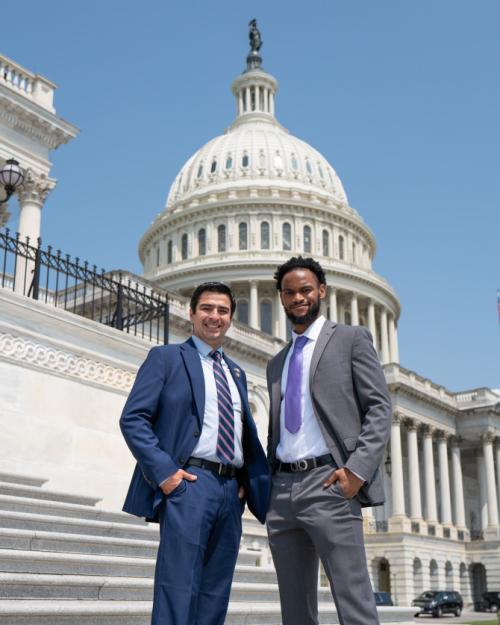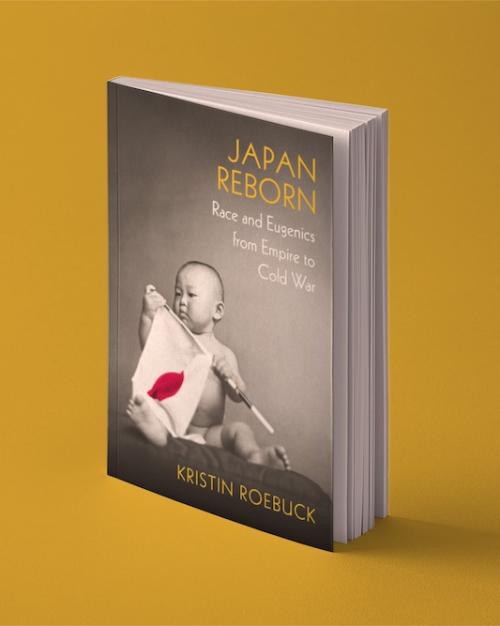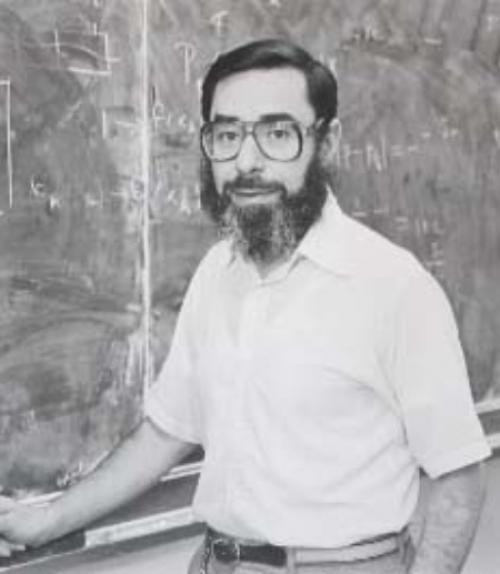Harry Kesten, Ph.D. ’58, the Goldwin Smith Professor Emeritus of Mathematics in the College of Arts & Sciences, whose insights advanced the modern understanding of probability theory and its applications, died March 29 in Ithaca. He was 87.
Kesten’s research into probability and randomness spanned aspects of mathematics and statistical physics guided by real-world applications. His work laid the foundation for describing a diverse range of phenomena in engineering, computer science, ecology, economics and other fields. His doctoral thesis provided a comprehensive system to describe “random walks” – a mathematical term to describe taking random steps on a grid which can be used to model many kinds of processes.
At first, few mathematicians noticed the significance of the findings in his thesis.
“It took 20 years for Harry's work to be well understood and have an impact,” said Laurent Saloff-Coste, the Abram R. Bullis Professor of Mathematics. “Random walks are important in mathematics. They are related to understanding symmetries and arise in many different contexts and forms.”
Among other applications, Kesten’s thesis work was used in early computer science studies to understand how words are formed from digital alphabets.
In the 1970s his research turned from pure probability to questions motivated by physics. By the 1980s he began to delve into percolation theory, a branch of mathematics with applications in materials science, exploring everything from how water moves through coffee grounds to the movement of nuclear waste buried deep underground.
Physicists had previously studied percolation through simulations and observation but Kesten was the first to obtain a rigorous mathematical understanding of how liquids move through porous material. His work is used today in many applications, including how to obtain oil from rock shale to measuring with satellites the formation of underwater ice sheets in the Arctic.
“Harry supplied the key model for exploring many interesting phenomena. He is one of the most creative and influential probabilists of the 20th century,” Saloff-Coste said.
Kesten authored 191 papers and has been cited by more than 2,300 researchers. He is widely considered one of the most prolific and influential practitioners of probability theory.
“Harry Kesten's groundbreaking work and enduring legacy have been a large part of a century of greatness in probability at Cornell,” said Ravi Ramakrishna ’88, professor and chair in the Department of Mathematics. “His presence helped us to continue to attract outstanding people in the field.”
Born in Germany in 1931, Kesten and his family settled in Amsterdam in 1933 after fleeing the Nazis. He earned a bachelor’s in mathematics from the University of Amsterdam, then his doctorate from Cornell.
He taught for a year at Princeton University and for two years at Hebrew University in Jerusalem before returning to Cornell as a visiting assistant professor. He became a full professor in 1965 and remained until his retirement in 2002.
In 2001, he was awarded the Leroy P. Steele Prize for Lifetime Achievement by the American Mathematical Society (AMS). In 2012, the AMS named him to its inaugural class of fellows in recognition of his outstanding contributions to the field. He was a member of the National Academy of Sciences, the American Academy of Arts and Sciences and the Royal Netherlands Academy of Arts and Sciences.
He was predeceased by his wife Doraline in 2016. He is survived by a son, Michael Kesten ’90.
This story also appeared in the Cornell Chronicle.




